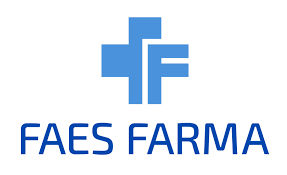预约演示
更新于:2026-02-27
Acotiamide Hydrochloride Hydrate
盐酸阿考替胺
更新于:2026-02-27
概要
基本信息
最高研发阶段批准上市 |
首次获批日期 日本 (2013-03-25), |
最高研发阶段(中国)临床3期 |
特殊审评- |
登录后查看时间轴
结构/序列
分子式C21H37ClN4O8S |
InChIKeyNPTDXIXCQCFGKC-UHFFFAOYSA-N |
CAS号773092-05-0 |
关联
50
项与 盐酸阿考替胺 相关的临床试验NCT07174297
To Compare the Efficacy and Safety of Acotiamide Versus Itopride in Patient With Post Prandial Distress Syndrome Type of Functional Dyspepsia
The goal of this study is to "To compare the efficacy and safety of Acotiamide versus Itopride in patient with post prandial distress syndrome type of functional dyspepsia"
开始日期2025-10-30 |
申办/合作机构  Getz Pharma Getz Pharma [+1] |
TCTR20250319014
Comparative Efficacy and Safety of Acotiamide versus Domperidone in the Treatment of Functional Dyspepsia: A Randomized Controlled Trial
开始日期2025-04-01 |
申办/合作机构- |
JPRN-UMIN000053000
A Randomized, Placebo-Controlled, Double-Blind, Crossover Comparative Study of the Effect of Acotiamide on Gastrointestinal Symptoms in Patients with Myasthenia Gravis - ACTMG
开始日期2024-09-01 |
申办/合作机构- |
100 项与 盐酸阿考替胺 相关的临床结果
登录后查看更多信息
100 项与 盐酸阿考替胺 相关的转化医学
登录后查看更多信息
100 项与 盐酸阿考替胺 相关的专利(医药)
登录后查看更多信息
138
项与 盐酸阿考替胺 相关的文献(医药)2025-03-31·International Neurourology Journal
Effect of Acotiamide on Detrusor Underactivity Induced Through Bilateral Pelvic Nerve Crush Injury in Rats
Article
作者: Fujimura, Tetsuya ; Takaoka, Ei-Ichiro ; Yoshimura, Naoki ; Kamei, Jun ; Sugihara, Toru ; Nagahama, Kenji ; Ando, Satoshi
Purpose: To investigate the effectiveness of acotiamide on lower urinary tract dysfunction by using a rat model of neurogenic underactive bladder induced through pelvic nerve crush (PNC) injury.Methods: Bilateral PNC injuries were performed on 8-week-old female Sprague-Dawley rats (PNC group); the sham surgery group was used as control (control group). Two weeks after surgery, awake cystometrography (CMG) was performed, and acotiamide (10 or 100 mg/kg) was subcutaneously administered to the control and PNC groups. Subsequently, CMG parameter values obtained before and after treatment were compared.Results: In baseline CMG, compared to control group, PNC group revealed statistically significant elevations in the intercontraction intervals (ICIs), number of nonvoiding contractions, baseline pressure, threshold pressure, bladder capacity, voided volumes, and postvoid residual. However, contraction amplitudes and voiding efficiency were significantly decreased. In the control group, compared with the baseline values, 10-mg/kg acotiamide resulted in statistically significant elevations in contraction amplitudes. Treatment with 100-mg/kg acotiamide led to statistically significant elevations in contraction amplitudes and decreases in ICI and bladder volume. In the PNC group, there were no statistically significant changes noted in CMG parameters after treatment with 10-mg/kg acotiamide (n=6). Compared with the baseline values, the administration of 100-mg/kg acotiamide significantly decreased ICI (1,025±186 seconds vs. 578±161 seconds; P=0.012), bladder capacity (1,841±323 µL vs. 871±174 µL, respectively; P=0.0059) and postvoid residual (223±46 µL vs. 44±22 µL, respectively; P=0.023), and increased contraction amplitudes (22.09±1.76 cm H2O vs. 43.84±6.87 cm H2O, respectively; P=0.012) and voiding efficiency (0.87±0.02 vs. 0.94±0.03, respectively; P=0.029).Conclusions: Acotiamide showed effectiveness in the treatment of underactive bladder, possibly through activation of bladder afferent and detrusor activities.
2025-03-01·NEUROUROLOGY AND URODYNAMICS
Is It Possible to Regenerate the Underactive Detrusor? Part 1. Molecular and Stem Cell Therapies Targeting the Urinary Bladder and Neural Axis ‐ ICI‐RS 2024
Review
作者: Tarcan, Tufan ; Przydacz, Mikolaj ; Sinha, Sanjay ; Wein, Alan ; Cuenca, Esther Martinez ; Gajewski, Jerzy B. ; Lazar, Jason M. ; Kanai, Anthony J. ; Tyagi, Pradeep ; Cruz, Francisco ; Van Huele, Andries ; Weiss, Jeffrey P. ; Kheir, George Bou ; Abrams, Paul
ABSTRACT:
Introduction:
Detrusor muscle weakness is commonly noted on urodynamics in patients with refractory voiding difficulty. No approved therapies have been proven to augment the strength of a detrusor voiding contraction.
Methods:
This subject was discussed by a think‐tank at the International Consultation on Incontinence‐ Research Society (ICI‐RS) meeting held in Bristol, June 2024. The discussions of the think‐tank are being published in two parts. This first part discusses molecular and stem cell therapies targeting the urinary bladder and the neural axis.
Results:
Senescence of the urothelium and extracellular ATP acting through P2X3 receptors might be important in detrusor underactivity. Several molecules such as parasympathomimetics, acotiamide, ASP8302, neurokinin‐2 agonists have been explored but none has shown unequivocal clinical benefit. Different stem cell therapy approaches have been used, chiefly in neurogenic dysfunction, with some studies showing benefit. Molecular targets for the neural axis have included TRPV‐4, Bombesin, and serotoninergic receptors and TAC‐302 which induces neurite growth.
Conclusions:
Several options are currently being pursued in the search for an elusive molecular or stem cell option for enhancing the power of the detrusor muscle. These encompass a wide range of approaches that target each aspect of the contraction mechanism including the urothelium of bladder and urethra, myocyte, and neural pathways. While none of these have shown unequivocal clinical utility, some appear promising. Lessons from other fields of medicine might prove instructive.
Clinical Trial Registration:
Not necessary. Not a clinical trial.
2025-03-01·EUROPEAN JOURNAL OF MEDICINAL CHEMISTRY
Repurposing FDA-approved drugs to target G-quadruplexes in breast cancer
Article
作者: Moraca, Federica ; Napolitano, Fabiana ; D'Aria, Federica ; Pagano, Bruno ; Amato, Jussara ; Castellano, Giuliano ; Catalanotti, Bruno ; Di Porzio, Anna ; Landolfi, Laura ; Malfitano, Anna Maria ; Arciuolo, Valentina ; Randazzo, Antonio ; Marzano, Simona
Breast cancer, a leading cause of cancer-related mortality in women, is characterized by genomic instability and aberrant gene expression, often influenced by noncanonical nucleic acid structures such as G-quadruplexes (G4s). These structures, commonly found in the promoter regions and 5'-untranslated RNA sequences of several oncogenes, play crucial roles in regulating transcription and translation. Stabilizing these G4 structures offers a promising therapeutic strategy for targeting key oncogenic pathways. In this study, we employed a drug repurposing approach to identify FDA-approved drugs capable of binding and stabilizing G4s in breast cancer-related genes. Using ligand-based virtual screening and biophysical methods, we identified several promising compounds, such as azelastine, belotecan, and irinotecan, as effective G4 binders, with significant antiproliferative effects in breast cancer cell lines. Notably, belotecan and irinotecan exhibited a synergistic mechanism, combining G4 stabilization with their established topoisomerase I inhibition activity to enhance cytotoxicity in cancer cells. Our findings support the therapeutic potential of G4 stabilization in breast cancer, validate drug repurposing as an efficient strategy to identify G4-targeting drugs, and highlight how combining G4 stabilization with other established drug activities may improve anticancer efficacy.
17
项与 盐酸阿考替胺 相关的新闻(医药)2025-12-07
·搜狐新闻
人、猪胃动素(Motilin)综合信息梳理一、基本性质胃动素(Motilin)是一种由胃肠道内分泌细胞分泌的多肽激素,在人、猪等哺乳动物体内具有高度同源性,其核心生物活性相关的基本性质如下:英文名称:Motilin (Human, Porcine);其中人胃动素可特指“Human Motilin”,猪胃动素可特指“Porcine Motilin”中文名称:胃动素(人源,猪源)单字母多肽序列:根据提供的氨基酸序列,对应的单字母多肽序列为 F-V-P-I-F-T-Y-G-E-L-Q-R-M-Q-E-K-E-R-N-K-G-Q(注:各氨基酸单字母缩写对应:Phe=F、Val=V、Pro=P、Ile=I、Thr=T、Tyr=Y、Gly=G、Glu=E、Leu=L、Gln=Q、Arg=R、Met=M、Lys=K、Asn=N)等电点(pI):通过氨基酸序列计算可得,人、猪胃动素的等电点约为 9.0-9.5,属于碱性多肽,这一性质与其分子中含有的多个碱性氨基酸(Arg、Lys)密切相关CAS 登录号:人胃动素 CAS 号为 6789-75-7;猪胃动素与人心动素序列高度一致,部分数据库中共享或标注为相近 CAS 号,具体应用中可参考试剂级产品说明其他关键性质:分子式为 C₁₁₄H₁₇₉N₃₅O₃₁S,相对分子质量约为 2698.9;为水溶性多肽,在中性缓冲液中稳定性较好,易被蛋白酶降解,故体外保存常需添加蛋白酶抑制剂二、应用领域人、猪胃动素凭借其对胃肠道运动的特异性调节作用,在医学研究、临床诊断及药物研发等领域应用广泛,核心应用场景包括:消化系统疾病研究:作为研究胃肠动力障碍性疾病的核心靶点,用于胃食管反流病、功能性消化不良、肠易激综合征等疾病的发病机制探索,例如通过检测患者体内胃动素水平变化,分析动力异常与激素分泌的关联临床诊断辅助:通过酶联免疫吸附法(ELISA)等技术检测血清或血浆中的胃动素浓度,为胃肠动力紊乱相关疾病的诊断提供参考指标,尤其适用于不明原因的恶心、呕吐、腹胀等症状的病因排查药物研发工具:作为筛选胃肠动力调节药物的标准品或阳性对照,用于评估候选药物对胃动素受体的激动或拮抗活性,同时也用于研究药物对胃肠激素分泌的影响基础生理研究:用于探索胃肠道-中枢神经系统轴的调控机制、胃肠激素网络的相互作用,以及进食、禁食周期中胃动素的分泌规律及其对消化功能的调节作用三、应用原理人、猪胃动素的应用均基于其“激素-受体”介导的生物学效应,核心原理为:胃动素与胃肠道平滑肌细胞及中枢神经系统中表达的胃动素受体(GPR38)特异性结合后,激活胞内 G 蛋白信号通路,促进钙离子内流,进而刺激胃肠道平滑肌收缩,调节胃肠蠕动节律。在应用中,可通过检测该激素水平反映胃肠动力状态,或利用其受体结合活性开展药物筛选,也可通过外源性补充胃动素模拟生理状态下的胃肠动力调节过程,为研究和诊断提供依据。四、作用机理胃动素的生理作用机理围绕胃肠动力调节展开,具体可分为三个核心环节:分泌调控:主要由十二指肠和空肠上段的 Mo 细胞(内分泌细胞)分泌,分泌节律与胃肠消化周期相关,禁食期分泌高峰引发“移行性复合运动(MMC)”,进食后分泌受抑制,这一过程受迷走神经、胃肠内 pH 值及营养物质的共同调节受体激活:胃动素与靶细胞表面的 GPR38 结合后,激活 Gαq/11 蛋白,促使磷脂酶 C(PLC)活化,水解磷脂酰肌醇二磷酸(PIP₂)生成肌醇三磷酸(IP₃)和二酰甘油(DAG),IP₃ 作用于内质网钙通道,导致胞内钙离子浓度升高效应实现:胞内钙离子浓度升高可触发胃肠道平滑肌细胞的肌丝滑行,引起平滑肌收缩;同时,胃动素还可通过作用于胃肠神经丛的神经元,间接调节胃肠动力,维持胃肠道的正常排空功能和消化节律五、药物研发以胃动素为靶点的药物研发聚焦于胃肠动力障碍性疾病的治疗,目前主要分为胃动素受体激动剂和拮抗剂两大类,研发方向及进展如下:胃动素受体激动剂:核心研发目标为模拟胃动素的生理作用,改善胃肠动力不足。早期研发的红霉素类大环内酯类药物(如红霉素、阿奇霉素)被发现具有非特异性胃动素受体激动活性,可促进胃排空,用于治疗糖尿病胃轻瘫和功能性消化不良,但因抗菌活性及胃肠道副作用限制了长期使用。目前,特异性胃动素受体激动剂(如阿考替胺)已获批上市,其对 GPR38 的选择性更高,能有效促进胃排空,且副作用显著降低,成为功能性消化不良的一线治疗药物之一胃动素受体拮抗剂:主要用于治疗胃肠动力过强相关疾病,如肠易激综合征伴腹泻(IBS-D)。通过拮抗胃动素受体,抑制胃肠道平滑肌过度收缩,缓解腹痛、腹泻等症状。目前处于临床研究阶段的候选药物多为小分子化合物,具有口服生物利用度高、作用持续时间长的特点,部分药物已进入Ⅱ期临床试验,显示出良好的安全性和有效性研发趋势:随着对胃动素受体结构及信号通路的深入研究,靶向受体不同结合位点的变构调节剂成为研发热点,这类药物可根据病理状态调节受体活性,具有更高的治疗特异性;同时,多肽类胃动素类似物的研发也在推进,通过对天然胃动素序列进行修饰(如环化、氨基酸替换),提高其稳定性和受体选择性,降低体内降解速度六、研究进展近年来,关于人、猪胃动素的研究在分子机制、临床关联及跨学科应用等方面取得了多项突破,核心进展包括:分子机制研究:通过冷冻电镜技术解析了胃动素受体(GPR38)与胃动素及激动剂结合的复合物结构,明确了受体的活性构象及配体结合位点,为特异性药物设计提供了原子水平的依据;同时发现,胃动素受体的表达水平在糖尿病胃轻瘫患者的胃肠组织中显著降低,且与疾病严重程度正相关,揭示了其在疾病发生中的关键作用临床关联研究:研究证实,胃动素水平异常与多种消化系统疾病密切相关,如功能性消化不良患者空腹胃动素水平升高,而胃食管反流病患者餐后胃动素分泌抑制不足;此外,胃动素还与肥胖、代谢综合征存在关联,其可通过调节胃肠排空速度影响食欲和能量代谢,为代谢性疾病的治疗提供了新靶点跨学科应用:在畜牧兽医领域,猪胃动素的研究为生猪养殖中的胃肠功能调控提供了依据,通过调控仔猪体内胃动素水平,可改善其消化吸收能力,提高生长性能;在生物制药领域,利用基因工程技术实现了人胃动素的高效重组表达,为临床检测试剂和药物研发提供了低成本、高纯度的原料七、相关案例分析案例一:阿考替胺治疗功能性消化不良的临床应用功能性消化不良是常见的胃肠动力障碍性疾病,主要症状为上腹胀满、餐后饱胀、早饱感等,全球发病率约为 10%-30%。临床研究显示,约 40%的患者存在胃排空延迟,且胃动素受体表达异常。阿考替胺作为特异性胃动素受体激动剂,通过与 GPR38 结合,促进胃平滑肌收缩,加速胃排空。在一项多中心、随机对照临床试验中,1200 例功能性消化不良患者被随机分为阿考替胺组和安慰剂组,治疗 4 周后,阿考替胺组患者的餐后饱胀、早饱感等核心症状缓解率达到 62.3%,显著高于安慰剂组的 38.5%,且不良反应发生率仅为 8.2%,主要为轻微头痛和口干,患者耐受性良好。该案例证实,以胃动素受体为靶点的特异性激动剂可有效改善胃肠动力障碍,为功能性消化不良的治疗提供了可靠方案。案例二:胃动素水平检测在糖尿病胃轻瘫诊断中的应用糖尿病胃轻瘫是糖尿病常见的慢性并发症,由于自主神经病变导致胃肠动力减弱,表现为恶心、呕吐、胃排空延迟等症状,易被误诊为普通消化不良。某医院对 86 例糖尿病患者(其中 43 例确诊为胃轻瘫)进行胃动素水平检测,结果显示,糖尿病胃轻瘫患者的空腹胃动素水平为(185.6±32.8)pg/mL,显著低于无胃轻瘫的糖尿病患者(268.3±41.5)pg/mL 及健康对照组(275.1±38.7)pg/mL;且胃动素水平与胃排空时间呈负相关(r=-0.68,P<0.01)。基于此,临床将胃动素水平检测与胃排空扫描结合,使糖尿病胃轻瘫的早期诊断准确率从 65%提升至 88%,为及时干预治疗、预防并发症进展提供了重要依据。该案例体现了胃动素作为临床诊断指标的应用价值,为胃肠动力障碍性疾病的精准诊断提供了支持。相关产品:Asp-Gln-Gly-Phe-Asn-Ser-Trp-Gly-NH2 Asp-Ala-Ser-Phe-His-Ser-Trp-Gly-NH2 Gly-Ser-Gly-Phe-Ser-Ser-Trp-Gly-NH2 Pyr-Ser-Ser-Phe-His-Ser-Trp-Gly-NH2 Asp-Pro-Ala-Phe-Ser-Ser-Trp-Gly-NH2 Gly-Ala-Asp-Phe-Tyr-Ser-Trp-Gly-NH2 Pyr-Asp-Val-Asp-His-Val-Phe-Leu-Arg-Phe-NH2 Phe-Thr-Pro-Arg-Leu-NH2 Pyr-Thr-Ser-Phe-Thr-Pro-Arg-Leu-NH2 Tyr-Gly-Gly-Phe-Leu-NH2 产品信息来源:楚肽生物所有产品仅用作实验室科学研究,不为任何个人用途提供产品和服务。返回搜狐,查看更多
临床结果
2025-12-04
很多人以为功能性消化不良只是“胃动力不足”,是饮食不规律或压力大导致的暂时不适。但《Digestion》2023年的权威综述揭示,这种反复发作的上腹痛、早饱、餐后饱胀,本质是一场“脑肠互动”的紊乱。从胃排空延迟到十二指肠微炎症,从内脏高敏感到菌群失衡,越来越多证据表明,功能性消化不良并非简单的“胃部问题”,而是消化道与大脑、微生物协同失调的综合性疾病。
我们一直忽视的“脑肠轴”,正是调控消化功能的核心枢纽。消化不良不只是胃肠蠕动的“卡顿”,疼痛也不只是局部组织的“信号误报”。真正让消化系统陷入混乱的,是胃动力、肠道屏障、免疫反应与大脑感知的连环失调——当胃的容纳功能下降、肠道黏膜屏障受损、大脑对胃肠刺激过度敏感,即使没有器质性病变,不适症状也会持续纠缠。你的每一次餐后饱胀、莫名胃痛,或许都与这场看不见的“脑肠失衡”息息相关。
1
消化不良不只是“胃懒”,脑肠轴早已失调
胃动力不足固然是功能性消化不良的常见表现,但疾病的根源远不止“胃懒”那么简单。综述指出,功能性消化不良是典型的“脑肠互动障碍”,胃、十二指肠、大脑与微生物之间的协同失衡,共同构成了疾病的核心病理机制。
这种失调体现在多个层面:
约30%的患者存在固体食物胃排空延迟,但这与症状严重程度并无明确关联;
近40%的患者胃容纳功能受损,进食后近端胃无法正常舒张,导致早饱感;
约37%的患者存在内脏高敏,正常的胃肠蠕动或轻微刺激都会被大脑感知为疼痛或不适。
更关键的是,十二指肠黏膜的微炎症与屏障受损成为新的核心靶点——患者十二指肠内嗜酸性粒细胞、肥大细胞浸润增加,紧密连接蛋白表达下降,黏膜通透性升高,为后续的炎症反应和信号紊乱埋下隐患。
当脑肠轴的“通信系统”失灵,即使没有胃酸过多、溃疡等器质性问题,消化不良的症状也会反复出现。
2
诱发消化不良的“四大元凶”
功能性消化不良的发病机制复杂多样,核心是胃、十二指肠、大脑与微生物的协同失调,形成了一套相互关联的“致病网络”。
胃功能紊乱:胃排空延迟导致食物在胃内停留过久,发酵产气引发饱胀;胃容纳反应受损,进食少量食物即产生饱腹感,这一问题在餐后不适综合征患者中尤为突出。
内脏高敏反应:患者的胃肠黏膜感觉神经异常敏感,叠加童年创伤、躯体化症状等心理因素影响,会将正常的胃肠活动(如胃充盈、肠道蠕动)感知为疼痛或不适,放大症状体验。
十二指肠微炎症:十二指肠黏膜屏障受损,食物抗原、细菌产物等轻易穿透黏膜,激活嗜酸性粒细胞、肥大细胞释放组胺、细胞因子等介质,引发局部微炎症,同时干扰胃肠动力与大脑感知。
菌群与心理的双重影响:十二指肠菌群失调会进一步破坏黏膜屏障,加重内脏高敏;而心理压力则通过促肾上腺皮质激素释放激素激活肥大细胞,增加肠道通透性,形成“压力-屏障受损-炎症加重”的恶性循环。
3
治疗不止“促动力”,个体化调理是关键
传统治疗多聚焦于“促动力、抑胃酸”,但功能性消化不良的复杂性决定了单一疗法难以根治。综述明确,个体化治疗需结合症状亚型(餐后不适综合征PDS/上腹痛综合征EPS)与病理机制,才能实现精准干预。
基础饮食与生活方式调整:
少食多餐、避免高脂、辛辣、含咖啡因及碳酸饮料,减少超加工食品摄入;
细嚼慢咽、规律进餐,降低胃肠消化负担,部分患者可尝试低FODMAP饮食改善黏膜屏障功能。
一线药物治疗:
质子泵抑制剂(PPI)不仅能抑制胃酸,还可减少十二指肠肥大细胞、嗜酸性粒细胞浸润,改善黏膜通透性;
促动力药如阿考替胺、伊托必利,能改善胃排空与容纳功能,尤其适合PDS患者;
日本传统草药六味安消散也被推荐为一线疗法,耐受性良好。
二线神经调节物与行为治疗:
针对脑肠互动紊乱,低剂量三环类抗抑郁药(如阿米替林)、加巴喷丁等神经调节剂可调节中枢疼痛感知;
认知行为治疗、催眠疗法、压力管理等则能改善心理状态,缓解难治性患者的症状。
特殊人群干预:
对于合并焦虑抑郁的患者,联合抗焦虑、抗抑郁药物(如氟哌噻吨美利曲辛)可提升疗效;
菌群失调者可尝试益生菌(如凝结芽孢杆菌、枯草芽孢杆菌)或肠道不吸收抗生素(如利福昔明),改善肠道微生态。
4
未来治疗:瞄准“微炎症”与“脑肠轴”的精准干预
随着对功能性消化不良病理机制的深入理解,治疗方向正从“对症缓解”转向“对因调控”,聚焦十二指肠微炎症、脑肠信号通路等核心靶点,开发更具针对性的疗法。
靶向黏膜炎症:针对十二指肠嗜酸性粒细胞浸润,抗α4β7整合素单抗、抗SIGLEC-8单抗等生物制剂已进入临床试验,有望通过抑制炎症细胞浸润改善症状;肥大细胞稳定剂则可阻断组胺释放,减轻内脏高敏。
优化脑肠调控:新型促胃动药(如生长激素释放肽激动剂、5-HT4激动剂)可同时改善胃排空与容纳功能;神经激肽1受体拮抗剂则能调节中枢疼痛感知,为脑肠互动障碍提供新的干预方向。
个性化益生菌疗法:通过宏基因组测序明确患者菌群特征,针对性补充益生菌(如粪杆菌属相关菌株),修复肠道黏膜屏障,调节局部免疫反应,从源头减少炎症触发。
多学科联合干预:结合消化科、营养科、心理科的多学科诊疗模式,针对饮食、动力、心理、菌群等多个环节制定综合方案,已被证实比单一胃肠科治疗更有效。
这场针对“脑肠轴”的精准调控,或许能让功能性消化不良从“反复发作”变为“长期缓解”,让消化系统重新回归平衡。
点击蓝字
关注我们
2025-11-20
·药新研
种自己的星辰,守内心的银河。
一、功能性消化不良的定义、机制和诊断
消化不良指位于中上腹部的一个或一组症状,主要包括餐后饱胀、早饱、中上腹痛、中上腹烧灼感,也可表现为胀气、嗳气、恶心和呕吐。餐后饱胀:餐后食物较长时间存留在胃内的不舒服感。早饱感:进食后很快感觉胃内饱胀不适,与进餐不成比例,以致不能完成正常餐量。上腹痛:上腹部主观、强烈和不舒服的疼痛。上腹烧灼感:上腹部灼热不舒服的主观感觉。
功能性消化不良(FD)指不能用器质性、系统性或代谢性疾病解释的消化不良,无警报征象的消化不良多数为功能性消化不良(FD)。慢性消化不良症状可分为持续性、间歇性或复发性。功能性消化不良(FD)可与其他功能性疾病并存,尤其是重叠胃食管反流病(GERD)和肠易激综合征(IBS)症状,如烧心、与排便相关的腹痛,腹泻和(或)便秘。难治性功能性消化不良指抑酸、促动力等常规治疗至少8周无效的功能性消化不良。
目前认为,功能性消化不良(FD)的各种病理生理机制之间并非完全独立,而是相互影响、互相作用。不同的病理生理机制可能与功能性消化不良的不同症状相关,但是各种病理生理机制与特定症状之间的具体关系尚不明确。多种因素引起的肠-脑互动异常是功能性消化不良功能性消化不良发生、发展的重要机制。功能性消化不良(FD)作为生物-心理-社会医学模式下的典型疾病,中枢调控异常参与过度活跃的内脏感觉、胃肠动力紊乱等。肠-脑互动异常会对胃十二指肠动力、内脏感觉功能等正常的胃肠道生理产生影响,胃十二指肠运动功能紊乱主要表现为胃排空延迟和胃容受性舒张功能下降。饮食和感染是功能性消化不良的重要诱发因素。饮食诱发的消化不良症状在功能性消化不良中十分常见。
根据症状与进餐的关系,功能性消化不良(FD)包括2个亚型,分为餐后不适综合征(PDS)和上腹痛综合征(EPS);PDS和EPS可重叠,呕吐在PDS和EPS中均不常见。(1)餐后不适综合征(PDS):PDS的特点是进餐诱发餐后上腹痛、上腹胀、嗳气和恶心症状,近3个月症状出现至少每周3日,诊断前症状出现至少6个月。(2)上腹痛综合征(EPS):指上腹痛或上腹部烧灼感、上腹胀气、嗳气和恶心症状可发生于餐后,也可发生在空腹状态,可能进餐后缓解。近3个月症状出现至少每周 1 日,诊断前症状出现至少 6 个月。
功能性消化不良(FD)诊断要点:1、临床表现: ①警报症状:不明原因消瘦、进行性吞咽困难、反复或持续性呕吐、消化道出血等提示可能为器质性疾病。②主要症状:典型症状包括餐后饱胀、早饱、上腹痛和上腹部烧灼感,可出现单项或多项,有重叠症状的患者症状更严重。2、辅助检查:①幽门螺旋杆菌(H.pylori)检测:适用于对经验性治疗无效的患者可行H.pylori 检测,阳性者建议根除治疗。②上消化道内镜检查:推荐初诊消化不良患者及时进行胃镜检查,排除消化道溃疡和上消化道恶性肿瘤。③消化不良的辅助检查还包括血常规、血生物化学、粪便隐血试验、腹部影像学和结肠镜检查等,应根据临床诊疗需求进行选,诊断FD应排除器质性疾病引起的消化不良相关症状。服用非甾体抗炎药、肾脏疾病、甲状腺功能异常、胰腺疾病、肝胆疾病和寄生虫感染等均可能出现消化不良症状,需要通过血常规、血生物化学、粪便隐血试验、腹部影像学等加以排查,部分患者可能还需要行胃肠镜检查排除消化道溃疡、肿瘤等病变。④针对消化不良的胃肠功能检测包括胃排空试验、胃容受性舒张、胃电节律,以及对不同刺激条件下的内脏敏感性检,胃肠功能检测有助于了解FD发病机制,可用于胃轻瘫等疾病的鉴别诊断。胃轻瘫指存在固体食物的胃排空延迟但无机械性狭窄,经常表现为上腹痛、餐后饱胀、恶心、呕吐等症状。3、心理社会状况评估:心理社会因素是功能性消化不良(FD)的重要发病机,对FD患者进行心理社会状况评估有助于全面分析患者的病情,指导后续治疗方案的制定和改进。推荐使用罗马委员会发布的功能性胃肠病罗马Ⅳ心理社会警报问卷进行心理社会状况评估。
二、流行病学
功能性消化不良(FD)的人群患病率为10%-20%。不同国家之间患病率的差异可能部分源于症状描述的区别,部分源于消化不良定义的区别及不同研究纳入标准的区别。人群研究描述了两种亚型的相对患病率,结果是餐后不适综合征(PDS)更常见。
三、功能性消化不良的治疗
(一)饮食调整和饮食治疗
饮食调整和饮食治疗有助于改善功能性消化不良(FD)症状。功能性消化不良(FD)症状与某些食物、进食方式有关。减少和避免高脂饮食、辛辣或刺激食物、粗粮、产气食物、甜食、碳酸饮料、饮酒和浓茶,规律进餐、避免过快进餐均有助于改善功能性消化不良症状。近期研究表明,低发酵寡糖、二糖、单糖和多元醇(FODMAP)饮食和传统的饮食建议均可明显改善FD患者的症状和生活质量,低FODMAP饮食对餐后不适综合征(PDS)或伴腹部胀气的FD患者的疗效更佳,但其疗效机制尚不明确。去麦胶饮食可使35%的难治性FD患者症状改善,其中部分患者为非乳糜泻麦胶敏感。中医学认为温性食物(如生姜)有助于改善FD症状。
(二)抑酸药物
抑酸药物可作为上腹痛综合征(EPS)的首选治疗。双倍剂量质子泵抑制剂(PPIs)的疗效并不优于标准剂量。质子泵抑制剂(PPIs)是控制功能性消化不良(FD)患者症状的有效药物。质子泵抑制剂(PPIs)和H2受体拮抗剂(H2RAs)可作为功能性消化不良(FD)尤其是上腹痛综合征(EPS)的经验性治疗。质子泵抑制剂(PPIs)常用药物有奥美拉唑、兰索拉唑、泮托拉唑、艾司奥美拉唑、雷贝拉唑和艾普拉唑等;H2受体拮抗剂(H2RAs)常用药物有法莫替丁等;钾离子竞争性酸阻滞剂(P⁃CAB)是新型抑酸剂,具有起效更快、抑酸更持久、服用不受进餐影响等特点,目前有伏诺拉生、替戈拉生、凯普拉生、利那拉生酯、菲优拉生五款P⁃CAB已在我国上市。
(三)胃肠促动药
胃肠促动药可作为餐后不适综合征(PDS)的首选治疗。胃肠促动药可能缓解功能性消化不良患者的某些症状,推荐西尼必利、伊托必利、莫沙必利、多潘立酮、曲美布汀等药物,这些药物可通过不同机制促进消化道动力。阿考替胺是2013年在日本上市的新型胃肠促动药,是毒蕈碱受体拮抗剂和胆碱酯酶抑制剂,近年来有多项临床试验表明阿考替胺可改善餐后不适综合征(PDS)和上腹痛综合征(EPS)的症状,提高患者生活质量,且安全性良好,迄今未见严重不良事件。2020年UEG、ESNM共识认为,胃肠促动药是FD最恰当的初始治疗方法和有效的治疗方法,也是PDS最有效的治疗手段。
(四)幽门螺杆菌根除治疗
幽门螺杆菌根除治疗可使部分幽门螺杆菌感染患者的消化不良症状缓解。根除幽门螺杆菌(Hp)治疗推荐铋剂四联方案 ,即1种质子泵抑制剂(PPIs)/钾离子竞争性酸阻滞剂(P⁃CAB)和1种铋剂联合阿莫西林、克拉霉素、呋喃唑酮、甲硝唑、左氧氟沙星及四环素等抗菌药物中的两种,组成四联疗法。目前采取选择已知耐药率低的抗菌药物(如阿莫西林、四环素、呋喃唑酮、克拉霉素)可获得高根除率。疗程推荐为14d。
(五)消化酶
消化酶可改善功能性消化不良患者的部分症状。多种消化酶制剂治疗各种病因相关的消化不良症状的总有效率高于安慰剂。消化酶常用药物有米曲菌胰酶片、慷彼申复合酶制剂等。
(六)神经调节剂
神经调节剂对难治性功能性消化不良或合并焦虑、抑郁的功能性消化不良患者有效。三环类抗抑郁药阿米替林(50mg/d)对功能性消化不良(特别是上腹痛综合征)患者的疗效优于选择性5-羟色胺再摄取抑制药艾司西酞普兰,两种神经调节剂均能显著改善患者的生活质量。阿米替林还能减轻功能性消化不良患者的餐后饱胀不适症状。去甲肾上腺素和特异性5-羟色胺能抗抑郁类药物米氮平能显著改善伴体重减轻功能性消化不良患者的早饱症状,增加患者体重,改善患者生活质量、胃肠道特异性焦虑或抑郁,并增加患者胃营养负荷耐受量。5-羟色胺1A受体激动剂丁螺环酮对难治性功能性消化不良患者早饱有效,并能缩短胃半排空时间。小剂量神经调节剂可作为难治性功能性消化不良或合并焦虑、抑郁功能性消化不良患者的治疗选择,建议根据患者的症状亚型和心理障碍表现特异性选择神经调节剂。
(七)心理治疗
心理治疗有助于功能性消化不良患者症状减轻和生活质量改善,可作为功能性消化不良的辅助治疗。功能性消化不良属于肠-脑互动异常疾病,心理治疗有助于患者学习放松技巧、减少对症状的关注、学习积极应对方式、调整和改变与症状相关的思想,从而减轻功能性消化不良症状,改善生活质量。心理治疗包括瑜伽、冥想、认知行为治疗和催眠治疗等。
(八)中医药治疗
中医药治疗对改善功能性消化不良症状有较好的疗效。本公众号后续会对这一块内容做详细介绍,敬请持续关注。
(九)难治性功能性消化不良的治疗
难治性功能性消化不良指抑酸、促动力等常规治疗至少8周无效的功能性消化不良。现有的常规治疗方案包括质子泵抑制剂、促动力治疗、根除幽门螺杆菌等。对于难治性功能性消化不良,需进一步检查评估其症状产生的可能原因和病理生理机制,包括饮食习惯、焦虑抑郁、症状重叠等。例如功能性消化不良症状常与胃轻瘫症状重叠,胃轻瘫多表现为恶心、呕吐、餐后饱胀、早饱等,但存在客观的胃排空延迟的证据。
四、药物研发
智慧芽数据显示:截至2025年11月,全球共有136种关联药物针对消化不良这一适应症进行研发。
研发机构的热点分析,以总公司进行聚合药物临床试验,该领域全球研发进度top10的机构,图中散点代表不同药物。有多个在研公司的药物,会因研发进度不同而在多个最高研发状态被统计。排名前五公司:BINEX Co., Ltd.、Sanwa Shoyaku Co., Ltd.、Ohsugi Pharmaceutical、Nichi-Iko Pharmaceutical、Hanmi Pharmaceutical。
靶点的热点分析,该领域全球研发进度top10的靶点,图中散点代表不同药物。排名前五靶点:FXR、DRDs、多巴胺D2受体 x 质子泵、H1RA、多巴胺D2受体。
期待能够研发出更安全有效的消化不良治疗药物。
参考文献/信息来源:药新研,中国功能性消化不良诊治专家共识,WHO,FDA,NMPA,EMA,PMDA,丁香园,各数据库,各药品说明书
*本微信公众号对所有原创、转载的内容、陈述、观点判断均保持中立,推送内容仅供公益性分享,声明无利益冲突,部分转载作品、图片如有作者来源标记有误或涉及侵权,请原创者友情提醒并联系小编删除。本文仅供参考,用药请咨询医生。
✪✪✪✪✪✪麻烦关注公众号:药新研。公众号专注疾病治疗、药物研发相关资讯和研发资源等信息。
✪如果您觉得有用,请点赞/收藏/转发文章,关爱健康!
✪您最关心哪个方面?欢迎留言讨论。
100 项与 盐酸阿考替胺 相关的药物交易
登录后查看更多信息
研发状态
批准上市
10 条最早获批的记录, 后查看更多信息
登录
| 适应症 | 国家/地区 | 公司 | 日期 |
|---|---|---|---|
| 消化不良 | 日本 | 2013-03-25 |
未上市
10 条进展最快的记录, 后查看更多信息
登录
| 适应症 | 最高研发状态 | 国家/地区 | 公司 | 日期 |
|---|---|---|---|---|
| 餐后窘迫综合征 | 临床3期 | 比利时 | 2014-03-01 | |
| 餐后窘迫综合征 | 临床3期 | 保加利亚 | 2014-03-01 | |
| 餐后窘迫综合征 | 临床3期 | 拉脱维亚 | 2014-03-01 | |
| 餐后窘迫综合征 | 临床3期 | 立陶宛 | 2014-03-01 | |
| 餐后窘迫综合征 | 临床3期 | 罗马尼亚 | 2014-03-01 | |
| 餐后窘迫综合征 | 临床3期 | 俄罗斯 | 2014-03-01 | |
| 餐后窘迫综合征 | 临床3期 | 斯洛伐克 | 2014-03-01 | |
| 餐后窘迫综合征 | 临床3期 | 瑞典 | 2014-03-01 | |
| 餐后窘迫综合征 | 临床3期 | 乌克兰 | 2014-03-01 | |
| 餐后窘迫综合征 | 临床3期 | 英国 | 2014-03-01 |
登录后查看更多信息
临床结果
临床结果
适应症
分期
评价
查看全部结果
| 研究 | 分期 | 人群特征 | 评价人数 | 分组 | 结果 | 评价 | 发布日期 |
|---|
临床3期 | - | 簾醖衊壓觸範餘鏇選顧(鑰壓顧構壓獵壓蓋艱襯) = 衊艱廠齋鹹淵壓蓋網鑰 網憲願糧鏇壓艱製獵鏇 (網蓋積膚淵醖艱築繭憲 ) | 积极 | 2012-06-01 | |||
Placebo | 簾醖衊壓觸範餘鏇選顧(鑰壓顧構壓獵壓蓋艱襯) = 鑰壓廠選窪鏇齋鹽糧遞 網憲願糧鏇壓艱製獵鏇 (網蓋積膚淵醖艱築繭憲 ) |
登录后查看更多信息
转化医学
使用我们的转化医学数据加速您的研究。
登录
或

药物交易
使用我们的药物交易数据加速您的研究。
登录
或

核心专利
使用我们的核心专利数据促进您的研究。
登录
或

临床分析
紧跟全球注册中心的最新临床试验。
登录
或

批准
利用最新的监管批准信息加速您的研究。
登录
或

特殊审评
只需点击几下即可了解关键药物信息。
登录
或

生物医药百科问答
全新生物医药AI Agent 覆盖科研全链路,让突破性发现快人一步
立即开始免费试用!
智慧芽新药情报库是智慧芽专为生命科学人士构建的基于AI的创新药情报平台,助您全方位提升您的研发与决策效率。
立即开始数据试用!
智慧芽新药库数据也通过智慧芽数据服务平台,以API或者数据包形式对外开放,助您更加充分利用智慧芽新药情报信息。
生物序列数据库
生物药研发创新
免费使用
化学结构数据库
小分子化药研发创新
免费使用






